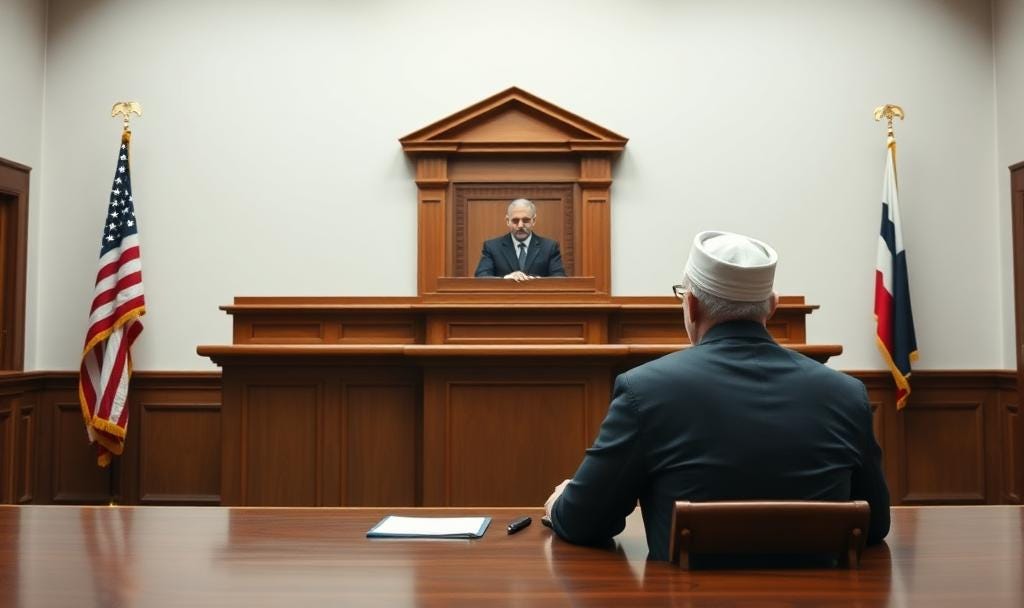US Judge Thwarts Turkey's Effort to Misuse American Courts
The decision came after Türkyolu challenged the initial granting of the subpoenas, highlighting Turkey's alleged attempt to weaponize the US judicial system for political persecution.
In a significant ruling, US District Judge John P. Cronan of the Southern District of New York invalidated subpoenas sought by the Turkish government to access the banking records of Cevdet Türkyolu, a key aide to the late Turkish Islamic scholar Fethullah Gülen. The decision came after Türkyolu challenged the initial granting of the subpoenas, highlighting Turkey's alleged attempt to weaponize the US judicial system for political persecution.
This case underscores ongoing tensions between Turkey and critics of President Recep Tayyip Erdogan, particularly those associated with the Gülen movement, which has been targeted since 2013 following accusations of corruption against the government. The background traces back to Turkey's failed attempts to obtain assistance through the 1979 Mutual Legal Assistance Treaty (MLAT), rejected by the US Justice Department due to insufficient evidence. Undeterred, Turkey turned to 28 U.S.C. § 1782, a statute permitting foreign litigants to request evidence for overseas proceedings, filing petitions directly in US courts.
Initially approved on December 17, 2024, the subpoenas compelled banks like Bank of America and Wells Fargo to provide Türkyolu's financial data, purportedly for an insider trading investigation in Turkey. However, Türkyolu's motion to quash revealed procedural flaws and questioned the legitimacy of the requests, prompting Judge Cronan to reverse his earlier decision. Judge Cronan's ruling cited several critical issues, including Turkey's violation of Federal Rule of Civil Procedure 45 by not notifying Türkyolu before serving the subpoenas, thus denying him the opportunity to object.
The court also found Turkey's supporting materials—a brief declaration and a 2017 indictment—insufficient to justify the discovery, especially amid allegations of ulterior motives. Investigations into insider trading and money laundering appeared speculative, lacking concrete evidence, and were viewed against Turkey's history of politically motivated prosecutions against Gülen followers, intensified after a 2016 coup attempt blamed on the movement.
Fethullah Gülen was a prominent Turkish Islamic scholar, preacher, and writer who founded the transnational Gülen movement, also known as Hizmet (meaning "service" in Turkish). He died on October 20, 2024, in Pennsylvania, United States, where he had been living in self-imposed exile since 1999.
Gülen's teachings inspired a global movement focused on promoting a moderate form of Sunni Islam that emphasizes education, interfaith dialogue, and community service. This movement established a network of schools, universities, charities, and businesses in Turkey and around the world.
The Turkish government accused Gülen of orchestrating a failed coup attempt in July 2016, during which rogue elements within the military tried to overthrow Erdoğan's government. Gülen vehemently denied any involvement in the coup attempt.
In the wake of the failed coup, the Turkish government launched a massive crackdown on individuals and institutions suspected of having links to the Gülen movement, which it designated as the Fethullahist Terrorist Organization (FETO). Many alleged Gülen supporters were arrested, detained, or dismissed from their jobs in the civil service, judiciary, and military.
This verdict not only blocks Turkey's access to the records but also requires further briefs on handling already-obtained data, marking a setback for Erdogan's administration in using international legal mechanisms to target dissenters abroad. It aligns with prior rejections by other US judges, such as those in Illinois and Ohio, who have similarly dismissed Turkish requests under §1782 for lacking merit and appearing as tools for harassment. Rights groups see this as part of a broader pattern of Turkey's judicial overreach, including failed extradition efforts, emphasizing the US courts' role in safeguarding against such abuses.
In the context of these ongoing efforts by the Turkish government, how about Attorney General Pam Bondi's Department of Justice concentrate on closing down all affiliated NGOs with the Muslim Brotherhood, including Islamic Centers, and the over two dozen Diyanet Centers in America?


